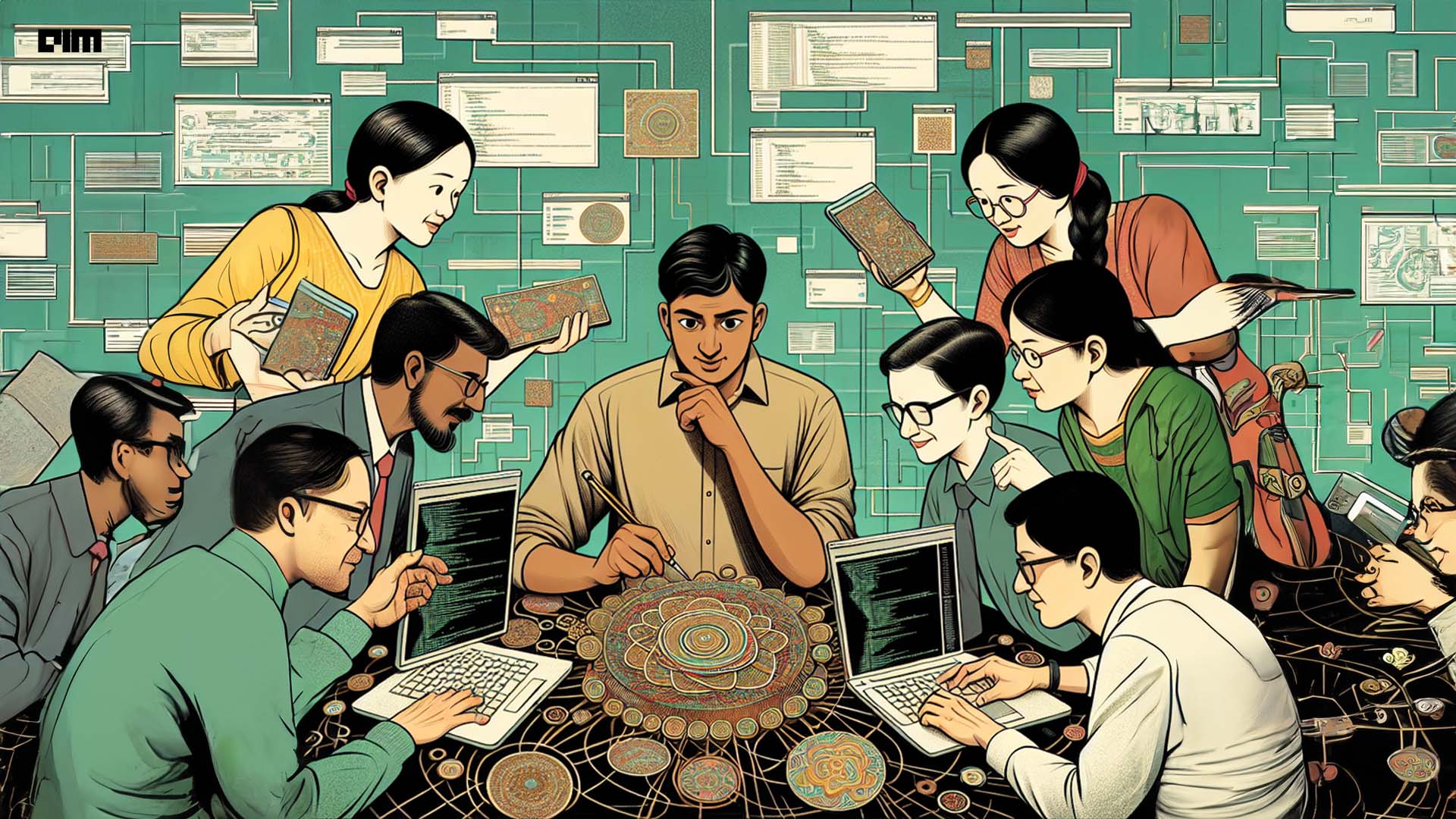|
Listen to this story
|
A recent claim by Gaurav Aggarwal, a former Google Research employee who is building an AI startup called Ananas Labs in India, has been doing the rounds on the internet. Aggarwal says that it is extremely difficult to raise capital in India for a deep-tech research startup.
“After about seven months since leaving Google to start an AI research company in India, I have to unfortunately cut-short my adventure due to various reasons,” he said in a post on X, talking about stress taking a toll on his health. He later explained in an interview that VCs are not ready to put money in deep-tech startups, but are only interested in OpenAI wrappers and the so-called consumer-tech startups.
Arguably, Aggarwal’s point of view does make sense. India’s generative AI scene is on an upswing, but the investors are cautious when it comes to investing in research startups. Interestingly, there are not many research-based startups in India.
Moreover, according to Databricks, India is one of the highest adopters of AI solutions in various industries. It claims that a significant 80% growth in its India business over the past two fiscal years was fueled by the rising demand for data and AI capabilities among Indian enterprises.
Should the Focus be on Foundational Models?
Nikhil Malhotra, Global Head-Makers Lab, Tech Mahindra, which is building the Project Indus, weighed in on the debate. “Most LLMs produced in India are built on top of the already-available LLMs. They cannot be called fundamental research or foundational LLMs,” he said.
Malhotra also added that for Project Indus, his team is building a multilingual model from scratch, which is comparatively tougher than building on top of models from OpenAI or Meta. This also tells us why a lot of Indian startups are still experimenting with Llama, Mistral, or other GPT models, as building models from scratch requires a lot of computation and AI expertise, which are still lacking in India.
Malhotra gives us a hopeful picture of why India should focus on foundational research. Meanwhile, Pratik Desai, the founder of KissanAI, also contributed to the discussion and shared similar thoughts while also questioning the need for building models from scratch.
“Training something from scratch and turning it into the 10th best foundation model that no one will use in production is the wealth a few companies with deep pockets can afford, even spending millions on failed training runs,” said Desai, adding that India has so many unique use cases that don’t need foundational model research and using models such as Phi, Orca, or Llama is enough.
“India has never led any fundamental research, but we have a golden opportunity as AI can be a levelling field,” added Desai. “However, this requires a fundamental shift from coaching, and academia to a change in mindset from parents, and founders to investors.”
Both Malhotra and Desai agree that it is a marathon for AI research and not a sprint anymore.
Anubhav Mishra, the co-founder of ZuAI, believes that “India and the resources which are here, should focus on foundational research, on large models which are more useful and logical to build”, such as Transformers. “We have lost the race and lack resources, at most, to build a frontier model,” he added.
A Mix of Both is the Future
Ankush Sabharwal, founder and CEO of CoRover.ai, the silent winner of the Indian AI race and the creator of BharatGP, also shared similar thoughts. “We are building something out of open source, fine-tuning it on our data, and making it proprietary,” Sabharwal told AIM.
“We have all these foundational models that are good enough to build virtual assistants for specific use cases. That is what we are doing by building models for specific use cases, instead of a broad generalised model,” said Sabharwal, highlighting how CoRover.ai believes in solving focused and accurate problems in different sectors and domains.
“If we don’t work on our own AI infrastructure, in the next 5-10 years, like we import oil, we will have to import AI,” said Aggarwal. He added that it pains him to see that India is not producing AI experts, just “slightly glorified engineers” who have no clue what they are building.
There have been several Indian researchers from Indian premier institutes who are building Indic language models on top of Llama and Mistral, but nothing foundational has been built yet. Even the most successful AI startup, Sarvam AI and its LLM OpenHathi are building on top of Llama.
The much-hyped Bhavish Aggarwal’s Ola Krutrim, whose architecture has not yet been revealed yet, has been a little bit of a disappointment since its launch. Meanwhile, initiatives such as IIT Bombay-led BharatGPT have been focused on building foundational multilingual models in India, and are also headed the open-source way. The same is the case with Vizzhy, which recently launched Hanooman, a foundational AI model which was built from scratch.
Though it is rare to find any other initiative that is being built from scratch, the lack of VCs’ interest in investing in such initiatives also shows a lack of understanding of the field. Hopefully, that will change with time. The research also focuses on foundation models that leverage India’s diverse culture.
Not to forget that, “AI is the future, and the future of AI is India.”














































































